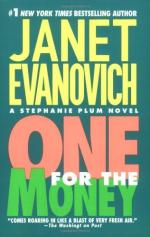|
This section contains 10,104 words (approx. 34 pages at 300 words per page) |

|
SOURCE: "The Financial Imp: Ethics and Finance in Nineteenth-Century Fiction," in Novel: A Forum on Fiction, Vol. 29. No. 2, Winter, 1996, pp. 165-83.
In the following essay, McLaughlin analyzes the conflict between ethics and economics, caused by the economic upheaval of the period and reflected in the literature of the period. McLaughlin focuses on outcome-based actions versus moral absolutes.
Economic issues have never been far from British fiction. Indeed, as literary historians have often pointed out, the rise of the novel in Britain in the eighteenth century itself closely paralleled the emergence of the new science of political economy in the period.1 Similarly, during the Victorian era, while the novel reached new heights of popularity in England, political economy was the main source of philosophical debate. In British philosophy at the time the standing of political economy was quite clear: it marked the sharp separation of moral philosophy into utilitarian...
|
This section contains 10,104 words (approx. 34 pages at 300 words per page) |

|


